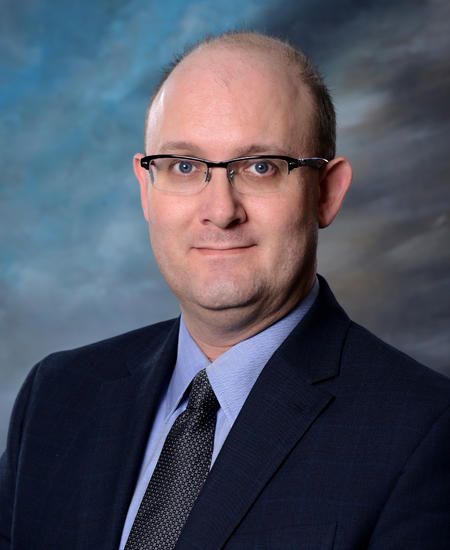Check out the Environmental Division Member Spotlight below:
 Dr. Jeffrey Seay
Dr. Jeffrey Seay
PJC Board of Trustees Engineering Professor, Professor of Chemical Engineering, University of Kentucky, Paducah Campus
President / Founder, Engineers for Sustainable Energy Solutions
1) How did you get involved in the environmental aspects of chemical engineering?
I’ve been active in environmental issues for as long as I can remember. I was a member of the student environmental club as an undergraduate and volunteered during the summer for a local environmental non-profit. In my undergraduate program in chemical engineering, I chose the environmental emphasis, which allowed me to take environmental focused electives as part of my Bachelor’s Degree.
2) Which people or programs in our field have been the most influential to you and your path?
As an undergraduate, Prof. Mahmoud El-Halwagi, who was then at Auburn University, was a tremendous influence. He changed the way I thought about chemical engineering. I learned to treat chemical processes as systems, and to optimize them and to minimize environmental impacts. As I began my academic career, Prof. Yinlun Huang was a tremendous influence. He got me involved in the Environmental and Sustainability programs at AIChE.
3) What are, in your opinion, the most interesting contributions you’ve made so far?
Fairly early in my academic career, I began working on applying chemical engineering principles to solve sustainable development problems in the developing world. I had the opportunity to visit an organization called the African Center for Renewable Energy and Sustainable Technology (ACREST) in rural Cameroon. In partnership with ACREST, we developed a pilot plant to produce biodiesel from waste cooking oil. This pilot plant was essentially a moonshine still, something that is familiar to those in my adopted home of Kentucky.
However, the waste cooking oil was difficult to source, so we adapted the biodiesel plant to convert waste plastic to fuel oil by slow pyrolysis. This adaptation allowed us to help address a great challenge in the developing world – mismanaged waste plastic. The process is low cost, simple to operate, and can be powered by solar energy. Depending on operating conditions, it can produce a fuel oil than can be used as a substitute for traditional diesel for kerosene fuels. Since transitioning this initial plant in Cameroon, this work has expanded to Uganda, India, Kenya, Tanzania, and Senegal. Working in the developing world inspired me to apply for a Fulbright Specialist award, which has allowed me to teach engineering students in Uganda over the summer. I have been fortunate to have received an appointment as visiting professor in the College of Engineering at Makerere University in Kampala, Uganda. This work has been tremendously rewarding and a lot of fun. I am enthusiastic about furthering this work in converting waste plastic to fuel in the developing world. In order to better disseminate this process, I recently started a non-profit called Engineers for Sustainable Energy Solutions(www.eses-plastic.org) to help developing communities implement a circular economy for plastics using appropriate technology strategies. AIChE Environmental Division members Quinta Warren and Mary Ellen Ternes have played an instrumental role in establishing this non-profit venture.
4) What do you see as opportunities for Chemical Engineering researchers to contribute to addressing the plastic waste problem?
The issue of plastic waste is a complicated one, and there are no easy solutions. Recycling is made more difficult by the tremendous number of additives used in plastic manufacture. There are over 70 different types of plastics with over 80,000 formulations. In the developing world, lack of infrastructure makes implementing circular economy principles impossible. Chemical recycling is a promising technology, but it is still in the developmental phase. Certainly, more research is needed here. Packaging is another key issue. Disposable plastic packaging is a tremendous contributor to mismanaged plastic waste. Developing compostable packaging is another area where chemical engineers can contribute.
However, the problem of waste plastic requires more than technical solutions. As manufacturers, users, and designers of plastics, we need to think about the entire picture, including policies and regulations.
5) Are there new directions that you see as particularly important or interesting?
For me, the understanding that engineering is linked with both the environment and society is incredibly interesting. As engineers, I think that we gravitate towards technical problem solving, but in reality, we cannot ignore social impacts of our products and processes. Global challenges like climate change, food security, and waste management will require both engineering and public policy-based solutions. Figuring out how chemical engineers can be part of these complex solutions is an ongoing challenge.
- Log in to post comments
